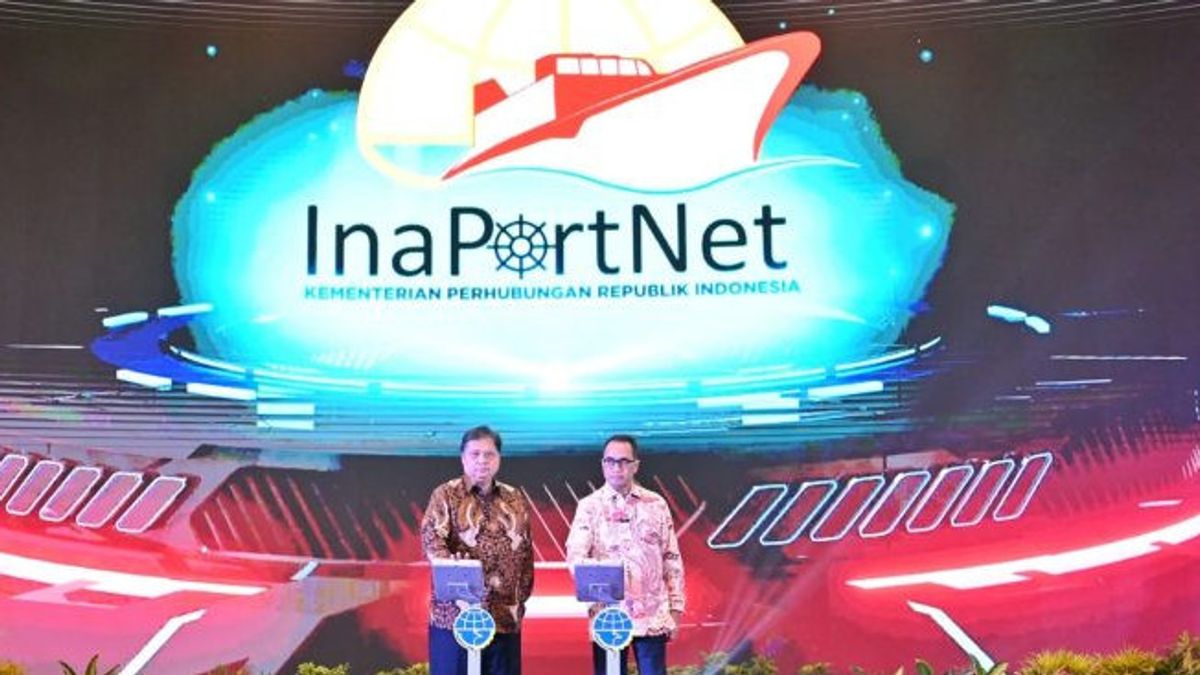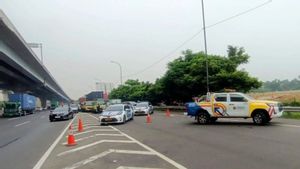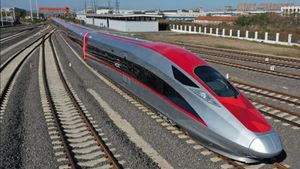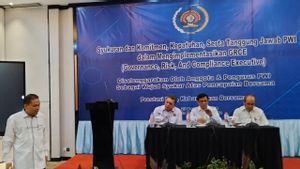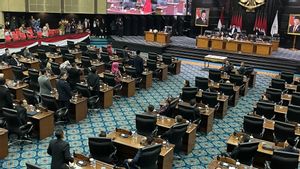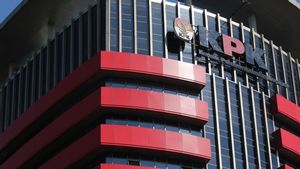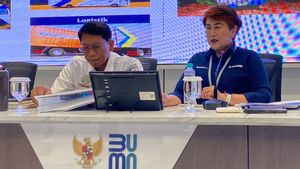JAKARTA - The Coordinating Ministry for Economic Affairs continues to improve digital transformation, including providing support for the implementation of the Inaportnet system in all ports in Indonesia.
Inaportnet's own implementation is part of the National Single Window and National Logistics Ecosystem which is expected to accelerate service efficiency at ports.
"We must strengthen the national logistics system with KPI (Key Performance Indicators) which is able to describe logistical conditions in real time. And one indicator is logistics costs, realizability, speed, and agility or adaptability," said Coordinating Minister for the Economy Airlangga Hartarto in his official statement Saturday, November 25.
Airlangga said this was important to deal with the growth of global containers which in 2024 according to Drewry Maritime Research will increase by 4.1 percent. Meanwhile, Asia itself is the main contributor to the global container which will experience growth of 3.5 percent.
"Collaboration, synergy, and system integration between Inaportnet, NLE, and other digitalization systems need to be carried out in real time with the operating control center so that data from orders to billing has been digitized by service users," said Airlangga.
Airlangga said the Inaportnet system would be useful for port organizers for administrative control and also as tools for monitoring ship traffic at ports.
The implementation of the Go Live Inaportnet phase III shows the Government's commitment in the digital transformation process in the field of ports. This is a form of Government initiative in simplifying and transparency of various services at ports which is also an important part of the Action of the National Strategy to Prevent Corruption.
SEE ALSO:
The development of the Inaportnet system has also adjusted the diversity and variety of port services while still referring to the provisions of the International Maritime Organization (IMO) which mandates that the service can be digitized.
Since the intense Inaportnet was implemented in 2016, until now the benefits have been felt by service users in 194 ports. The Inaportnet system is targeted to be integrated in 260 ports by the end of 2023.
Airlangga said another benefit of Inaportnet is that it can reduce the potential for illegal levies because there is no face-to-face learning, there is transparency of services, a more measurable completion time, optimization of state revenues, and increasing supervision of ship traffic services.
"I appreciate the collaboration that has been carried out by other Ministries and Institutions as well as relevant stakeholders who also support the acceleration of the implementation of the Inaportnet system," concluded Airlangga.
The English, Chinese, Japanese, Arabic, and French versions are automatically generated by the AI. So there may still be inaccuracies in translating, please always see Indonesian as our main language. (system supported by DigitalSiber.id)
